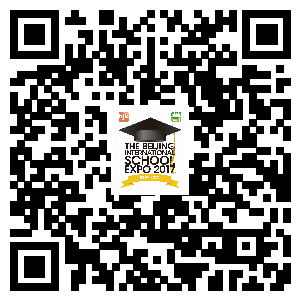[Editor’s Note: To meet schools featured in the School Choice Guide, register for the free Beijing International School Expo, where you can save time, energy, and money in you school comparisons. Scan the QR code below.]

The university admissions process has changed since parents of today completed it themselves. The paperwork is complicated enough for applicants based in the United States, but for expatriate and Chinese families whose education and experiences don’t always fit into the checklists, the task can be daunting. For guidance, beijingkids reached out to admissions professional Barbara Chen, currently the China Admissions Representative for the University of Tulsa.
Barbara Chen has been long active in admissions counseling, beginning with her undergraduate days at Georgetown followed by years of volunteer and professional posts in the field. In 2016 she completed her Master’s Degree in Higher Education at the University of Pennsylvania; her research there focused on university admissions for “Third Culture Kids” (TCKs).
Upon being asked what motivated her to concentrate her thesis on TCKs, Chen, a mother of two grown TCKs, replies that she saw a need from expat parents seeking “something tangible” to assist them and their children through the college recruitment season.
She adds, “There are guides on the transition, the adjustment, but nothing that focused on the nuts and bolts of the admission process tailored to the students who arrive on US college campuses each fall as ‘hidden immigrants.’”
Chen has interviewed admissions personnel from eight different universities, among them public, private, and Ivy League schools. From these she has been able to define a few common pitfalls among TCK applicants. Students need to be mindful of the standardized test schedules, especially in Asia, where the registration deadlines are earlier than those in the United States. According to Chen, TCKs often put themselves at a disadvantage because of “not starting the research process early enough and not planning a timeline.”
While many TCKs might hope being expatriates set them apart, Chen notes that alone “really indicates nothing more than where a student’s parents work.”
According to Chen, applicants need to remember, “You are more than your location… The overwhelming consensus from admissions officers was that they were far less concerned with the student’s actual location than with the perspective gained from that location. They were significantly more interested in student initiative and engagement with opportunities.”
She emphasizes the personal essay in particular as the place for TCK to demonstrate how living abroad has affected them. “This is the chance to relay information not found elsewhere in your application. Avoid trite and superficial topics—dig deep and show your perspective and growth. This is the part of the application where you have full control.”
For TCKs who have experienced multiple high school moves, Chen admits it can be disruptive toward progressive leadership roles or advanced academics. However, Chen advises, “Focus on your offerings and maximize your rigor in those offerings.”
In her current role representing the University of Tulsa, Chen recruits Chinese applicants as well as TCK. Still, what she has learned in her research is also useful for Chinese students. For evaluating potential schools, Chen recommends looking beyond the rankings. “I encourage all applicants to cast a wide net when beginning their college search,” she said. “I try to stress two things: value and being valued.”
To determine the value of education at a particular university, Chen lists factors such as graduation rates, the ability to graduate in four years, and availability and percentage of students receiving scholarships. To quantify “being valued,” she counsels, “Look for a school that puts its money in the undergraduate student experience. Look for need- and merit-based aid that is renewable every year. Look for a school that meets your unique needs during the application process and once you are on campus.”
This article originally appeared on page 18-20 of the 2017 issue of beijingkids School Choice Guide. Click here for your free online copy. To find out how you can obtain a hard copy, contact distribution@truerun.com.




